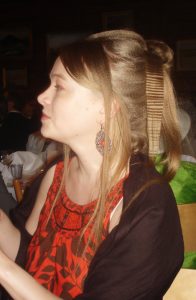Please note that this website is no longer updated. You can find all the latest information about AGORA and our activities on our new website https://www2.helsinki.fi/en/researchgroups/agora-for-the-study-of-social-justice-and-equality-in-education
Critical Sociology and Philosophy of Education (CRISP)
Research group led by Prof.(tenure track) Kristiina Brunila
We combine sociological, philosophical, cultural, feminist, historical, social, political and economic perspectives in order to study social change in education and beyond. Our research offers theoretical, conceptual and methodological understanding for the future of education especially in relation to the diversification of populations, needs for stronger social justice/participation, and equality. We tackle with several acute questions in education, such as privatisation, marketisation, new governance, democracy and inequalities.
We are a proactive group and consider our research politically relevant because it helps to highlight the contradictions of policies and practices of education and the related potential for change. Our research supports a deeper understanding of how societal differences such as gender, age, ethnicity/race, sexuality, disability, precarity and health intersect in education. Bringing them together with perspectives of policies and practices of education, governance, power, and agency, and societal mechanisms of inequalities is a reason that makes our research unique. We aim to push research and educational sciences forward by challenging unquestionable orthodoxies that operate as if they were the objective truths.
Our theoretical work includes internationally recognized contributions to marketisation, privatisation, projectisation and the rise of psychological and therapeutic ethos and diagnostics in national and transnational education policies and practices as well as mapping rationalities and effects of global network governance in education. Our work freshenes up governmentality studies with theories of political agency and resistance while deepening understanding of power relations without paralyzing to them. Our ambition has been to combine ideas of governance and governmentality in order to scrutinize changes in educational policies and practices from early childhood education to comprehensive school, vocational and higher education and adult education.
We have coined and challenged inequalities in educational, transnational and cross-sectoral policies and educational practices. We have scrutinized governance of knowledge production together with effects of marketisation and neoliberalism. A part of our newest work contributes to the philosophy of education with the ethos of vulnerability and with new theories of democracy and human subjectivity. We have contributed to the critical work of neoliberalism and knowledge formation in education with the idea of affective subjectivity, precarity and creation of counter politics.
We are curious towards the ways in which various kinds of societal shifts shape educational institutions, knowledge formation, social processes and lived experiences of students, teachers, researchers, children, young people and adults. We have deconstructed and reconstructed educational policy steering, management and leadership as well as elaborated with critical, equality and feminist pedagogy in education. We have developed methodological work of discursive-deconstructive, ethnographic, participatory and nomadic research approaches.
The research group includes the following researchers (in alphabetical order):
Kristiina Brunila, PhD, Adjunct Professor/Docent in Education and Social Sciences
I work as Associate professor (tenure track) of social justice and equality in education. I am keen on researching something that is politically relevant, something that makes sense of this world and our thinking.
With our research group we are providing new openings, theorisations and critical analysis of sociology and philosophy of education as well as cultural and feminist studies. Themes such as marketisation, privatisation, neoliberalism, knowledge and affective capitalism, (new) governance, social exclusion, societal differences, and inequalities have been the focus of my publications. I have analysed societal power relations and agency perspectives in higher education, research, vocational education, teacher training, youth work, adult education and public sector development activities. In addition, social exclusion of ‘at risk’ youth, the situation of young people in prison and afterwards, heteronormativity and the rise of psy-disciplines have been among my interests. One of the most important aims has been to break the vicious cycle of individualisation of societal problems revealed in both educational policies and practices. Currently I am interested in the future trajectories of education and especially in terms of precision education governance.
With my colleagues I have developed a discourse-deconstructive approach. I have also written about genealogical, ethnographic, narrative and action research methods. Currently I am excited about nomadic drifting.
I’m keen on scifi-literature and I like to Foucault myself. I am an old hippie who was born 10 years too late. (See also: www.kristiinabrunila.com)
Pinja Fernström, Masters student
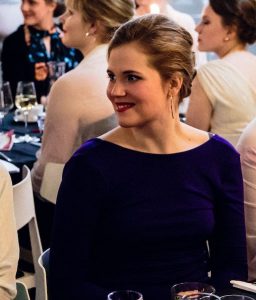 I am a masters student in general and adult education. I am writing my masters thesis on wellbeing as a new form of governance.
I am a masters student in general and adult education. I am writing my masters thesis on wellbeing as a new form of governance.
I am interested in issues of power, marketization and politics. Outside of work I am very active in student organisations. I am also an enthusiast of music and dance.
Kristiina Hannukainen, M.Ed.
I am a PhD student currently finalising my doctoral dissertation on the doctoral school management in the knowledge capitalism. My research interests include higher education policy, education, knowledge capitalism, academic research, knowledge, power andgovernance. As well as being a researcher, I am also happy to teach.
Elina Ikävalko, PhD
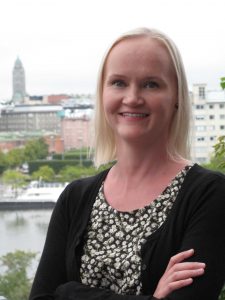 I work as a postdoctoral researcher and a part-time teacher. I have researched gender equality politics and equality work for over ten years but my current research is concerning new practices of mental health work and ableism. I’m also interested in poststructural methodologies and nomadic research as well as theories about power and subjectification. I’m into anything art related – especially literature and visual arts – and some day I’m hopefully able to combine those with academic research.
I work as a postdoctoral researcher and a part-time teacher. I have researched gender equality politics and equality work for over ten years but my current research is concerning new practices of mental health work and ableism. I’m also interested in poststructural methodologies and nomadic research as well as theories about power and subjectification. I’m into anything art related – especially literature and visual arts – and some day I’m hopefully able to combine those with academic research.
I’m an undergraduate studying general and adult education. I’m interested in power relations and issues of racialisation and marginalisation. I’m interested in learning more about postcolonialism and feminist studies. I also teach dance and in my spare time I like to wonder around art museums, galleries and bookshops.
Ville Kainulainen, M.Ed.
A New Era of Workplace Unionism? – Shop Steward Action in Finland’s Low Paid Private Service Sector.
Pekka Koskinen
 I’m an undergraduate studying educational sciences. Lately i’ve been into feminist (and) disability studies. I’m also interested in sociology of education, and especially questions about marketization and educational policy. I use most of my free time exploring different spaces with my skateboard and bicycle.
I’m an undergraduate studying educational sciences. Lately i’ve been into feminist (and) disability studies. I’m also interested in sociology of education, and especially questions about marketization and educational policy. I use most of my free time exploring different spaces with my skateboard and bicycle.
Tuuli Kurki, PhD
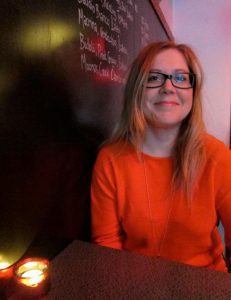 I work as a postdoctoral researcher in CoSupport-project. My current research interests include whiteness, racism and (neo-)colonialism in global and local mental health policies and practices with a special interest on mental health services provided for racialized young people. Previously I have examined how integration policies and practices in education gender, racialize and marginalize people involved in them.
I work as a postdoctoral researcher in CoSupport-project. My current research interests include whiteness, racism and (neo-)colonialism in global and local mental health policies and practices with a special interest on mental health services provided for racialized young people. Previously I have examined how integration policies and practices in education gender, racialize and marginalize people involved in them.
Maija Lanas, PhD
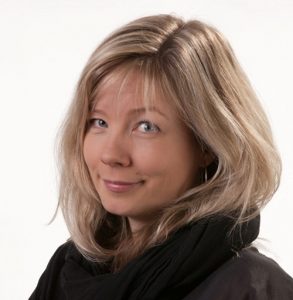 I work as a postdoctoral researcher and a lecturer, physically based in the University of Oulu. I am a visiting researcher in CRISP in Helsinki. I am interested in the implicit exclusionary mechanisms in education. My previous project (FA 2013-2016) focused on the subjectification processes of Finnish student teachers during initial teacher education, and before that I conducted an ethnography in a reindeer herding village, looking into implicit exclusionary discourses in Finnish education (PhD, 2011). I am currently beginning a project in which I analyse the discourse of disturbing behavior in school.
I work as a postdoctoral researcher and a lecturer, physically based in the University of Oulu. I am a visiting researcher in CRISP in Helsinki. I am interested in the implicit exclusionary mechanisms in education. My previous project (FA 2013-2016) focused on the subjectification processes of Finnish student teachers during initial teacher education, and before that I conducted an ethnography in a reindeer herding village, looking into implicit exclusionary discourses in Finnish education (PhD, 2011). I am currently beginning a project in which I analyse the discourse of disturbing behavior in school.
I become excited when I get to discuss with practitioners or with students about research and practice, and I often get to do this when lecturing in various seminars around Finland.
I relax best doing nature-bound activities, hiking, kayaking, mountain biking, climbing, but mostly I just read entertaining books, under a quilt, with a big cup of tea or a glass of wine.
Anniina Leiviskä, PhD.
I am a postdoctoral researcher in CRISP at the AGORA for the study of social justice and equality in education -research centre. My research background is in the philosophy of education. My doctoral thesis, which I completed in 2016, addressed the relevance of Hans-Georg Gadamer’s philosophical hermeneutics to the philosophy of education. I am currently working on my three-year postdoctoral research project that examines political exclusion and political extremism as challenges for democracy and citizenship education. I am particularly interested in analyzing and comparing the normative conditions of democratic participation inherent in the contemporary theories of democracy and examining the significance of these conditions for the theory and practice of citizenship education.
Ameera Masoud, M.Ed.
 As a PhD researcher in CRISP. I am interested in researching how discourses in policies as well as educational practices have the power to influence and shape identities especially concerning vulnerable groups, e.g. migrants and refugees.
As a PhD researcher in CRISP. I am interested in researching how discourses in policies as well as educational practices have the power to influence and shape identities especially concerning vulnerable groups, e.g. migrants and refugees.
I like to be critical, as I believe using a critical approach allows us to find out the direction that politics and power is transforming the society. Change needs critique, and critique brings out awareness.
Currently, through my PhD research I am analyzing how identities of young migrants are being shaped by the Finnish integration policy and practices. Also, how young migrants are governed by the neoliberal logic. I hope that my research will help achieve social justice through integration programs, and contribute to reduced inequalities.
Katariina Mertanen, M.Ed.
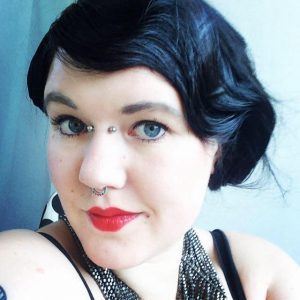 I am a PhD researcher in CRISP. My research is about young adults considered to be ‘at risk’ of social exclusion. Especially I focus on policies and practices that are targeted to enhance young people’s integration ‘back’ to society. When I am not working I spend my time with my giant schnauzer, playing Ingress and MTG, and ranting online about feminism and social justice.
I am a PhD researcher in CRISP. My research is about young adults considered to be ‘at risk’ of social exclusion. Especially I focus on policies and practices that are targeted to enhance young people’s integration ‘back’ to society. When I am not working I spend my time with my giant schnauzer, playing Ingress and MTG, and ranting online about feminism and social justice.
Anna Mikkola, M.Ed.
Kalle Mäkelä, M.Soc.Sc., M.A.Ed.
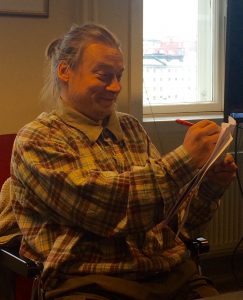 I am a PhD researcher in CRISP. The preliminary topic of my research is “Governing young people through neoliberal management – A Genealogy of vulnerability of young people in Finland”. I’m interested in sociology and especially its critical branches of thinking. I have a sociological background from my previous studies in Social Sciences. Also philosophy and critical social anthropology are close to my heart. I like to read Foucault, Deleuze, Marx and Nietzsche as well as postcolonial and feminist literature. I do acupuncture and joint/muscle fixing and berry picking and wondering in the forest with my family. I also tend bees.
I am a PhD researcher in CRISP. The preliminary topic of my research is “Governing young people through neoliberal management – A Genealogy of vulnerability of young people in Finland”. I’m interested in sociology and especially its critical branches of thinking. I have a sociological background from my previous studies in Social Sciences. Also philosophy and critical social anthropology are close to my heart. I like to read Foucault, Deleuze, Marx and Nietzsche as well as postcolonial and feminist literature. I do acupuncture and joint/muscle fixing and berry picking and wondering in the forest with my family. I also tend bees.
Antti Paakkari, M.Soc.Sc., BA
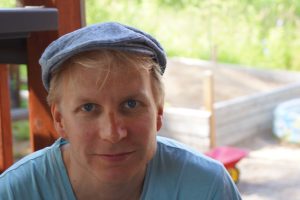 I am a PhD Researcher interested in the effects of technology on school space and power relations. I have written on knowledge capitalism, affective work and critical pedagogy. Presently I’m working in a project called Textmöten that looks at upper secondary school student’s communication and technology use during school days.
I am a PhD Researcher interested in the effects of technology on school space and power relations. I have written on knowledge capitalism, affective work and critical pedagogy. Presently I’m working in a project called Textmöten that looks at upper secondary school student’s communication and technology use during school days.
Jaana Pesonen, (PhD)
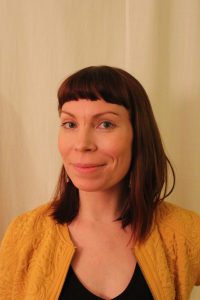
I work as a university lecturer at the Faculty of Education, University of Helsinki. I teach courses in early childhood education and teacher education programs. My doctoral dissertation was about representations of multiculturalism in children’s literature. In my research, I have used theories of intersectionality, and for example, anti-racism. My current research interests include norm criticism in children’s culture and critical literacies in early childhood education. In my free time, I enjoy yoga and gardening.
Hannele Pitkänen, M.A.Ed.
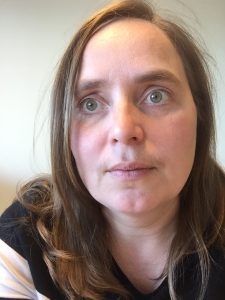 I am a PhD researcher. My doctoral thesis is a historical and sociological discourse analysis of the emergence and transformation of evaluation discourses in the field of Finnish comprehensive schooling since early 1970s until 2010s. The methodological and theoretical framework of my current study is inspired by the archaeology of knowledge as a history of the present and the analytics of government. I approach the current evaluation as way of ‘knowledge based’ governing of education, which is highly entangled with globally spread policy technologies and techniques such as marketization, decentralization and managerialism.
I am a PhD researcher. My doctoral thesis is a historical and sociological discourse analysis of the emergence and transformation of evaluation discourses in the field of Finnish comprehensive schooling since early 1970s until 2010s. The methodological and theoretical framework of my current study is inspired by the archaeology of knowledge as a history of the present and the analytics of government. I approach the current evaluation as way of ‘knowledge based’ governing of education, which is highly entangled with globally spread policy technologies and techniques such as marketization, decentralization and managerialism.
In my study, I am aiming to unravel the Finnish historical lines of thoughts around the local evaluation of basic education. Finally, I will show how school has become governed through the self-evidences constructed in these ideas of local evaluation. I hope to see my analysis as a ground for a critical discussion about the future of local evaluation of basic education in Finland and elsewhere. The question is acute. For example, in a highly influential European policy document more ‘systematic’ and ‘continuous’ evaluation and even ‘system of quality assurance’ at all levels of European education systems is urged to ‘improve’ the ‘teaching and learning’ and further the ‘employability’ and finally the ‘global competitiveness’ of European economies.
Leena Teräs, Project Manager
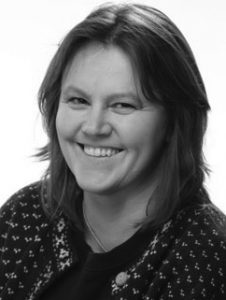 I’ve been a member of the research community since 1996, including the coordinator of many research networks in both national and international level. My main focus is gender equality and diversity in various fields such as technology, sports, education, leadership and management as well as regional development.
I’ve been a member of the research community since 1996, including the coordinator of many research networks in both national and international level. My main focus is gender equality and diversity in various fields such as technology, sports, education, leadership and management as well as regional development.
Currently I’m working as a project manager in TASOVA –gender equality & diversity into regional development– development, training and research project. We have great partnerships with all major gender equality and diversity organizations in Finland. AGORA is a major stake holder in this project.
As part of TASOVA we are developing a gender equality and diversity (GED) specialist training programme and regional development practices. We also develop and synchronize national GED analysis and follow-up methods and strengthen local GED networks. The project is funded by the European Social Fund and the Ministry of Social and Health, Equality Division for 2016–2019.
Some of my former projects can be found here.
I´m a PhD researcher at University of Helsinki, the Department of Education at the faculty of Educational sciences. I do my doctoral study in a research group CRISP which is a part of AGORA research center for the study of social justice and equality in education. My main research interests are in the critical philosophies of education, recent Critical Social Theory, and political sociology of education.
My study explores democratic education from the standpoint of the philosophy of Critical Pedagogy. My special focus is on ethical and political commitments underlying Critical Pedagogy, dialectics as theory of subject´s consciousness, and world of structure and multiple power relations, the notions of radical democracy, and political injustice. I also scrutiny contemporary feminist-political epistemologies, theories of justice, and democracy and how these may contribute to Critical Pedagogy as democratic education.
The youth´s political engagement, and differing forms of democratic participation are issues of my interest. I´m concerned about public discourses articulated as a “crisis of democracy” or “crisis of the political” and how the neoliberal de-politized culture produces consequences on subjectivities and for the construing of democratic citizenship.
Cynthia Trililani, (MA)
My PhD research investigates the under-researched area of immigrant mothers’  educational experiences and sense of belonging in Icelandic higher education, in conjunction with their identity construction and strategies for balancing multiple responsibilities to achieve academic success. Additionally, I also examine the impact of intersectional approach or lack thereof in educational policies and practices on educational experiences of students of minority background. My research interests lie in the fields of immigration, gender and feminist studies, and motherhood ideology.
educational experiences and sense of belonging in Icelandic higher education, in conjunction with their identity construction and strategies for balancing multiple responsibilities to achieve academic success. Additionally, I also examine the impact of intersectional approach or lack thereof in educational policies and practices on educational experiences of students of minority background. My research interests lie in the fields of immigration, gender and feminist studies, and motherhood ideology.
Touko Vaahtera, MA
 I am a PhD researcher. My research interests include disability studies, cultural studies, queer and crip theory and science and technology studies. My articles have been published in Lambda Nordica, Scandinavian Journal of Disability Research and Disability & Society. The latest article ‘We swam before we breathed or walked’: able-bodied belonging in popular stories of evolutionary biology appeared in Disability & Society (vol.31, n.5, 2016).
I am a PhD researcher. My research interests include disability studies, cultural studies, queer and crip theory and science and technology studies. My articles have been published in Lambda Nordica, Scandinavian Journal of Disability Research and Disability & Society. The latest article ‘We swam before we breathed or walked’: able-bodied belonging in popular stories of evolutionary biology appeared in Disability & Society (vol.31, n.5, 2016).
Saara Vainio, Master Student
I’m a master student in general and adult e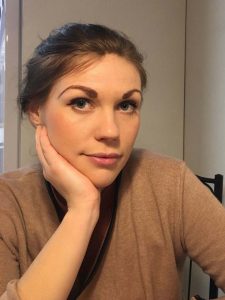 ducation in University of Helsinki. Currently I’m writing my master thesis on genealogy of Social exclusion. I’m interested in issues of power, political rationality, citizenship, and therapization.
ducation in University of Helsinki. Currently I’m writing my master thesis on genealogy of Social exclusion. I’m interested in issues of power, political rationality, citizenship, and therapization.
One day I would like to see my self doing a doctoral dissertation in one of these topics. In free time I like to travel and explore new cultures.
Youth on the Move – Revisiting the ‘vulnerability zeitgeist’ in an era of market-oriented education (2014-2017)
Director: Prof.(tenure track) Kristiina Brunila
In this research project we ask how politics and practices shape the interests of children and young people themselves, including those who are outside of formal education and work. We are also dedicated to developing research by critically analyzing cross-sectional politics and educational practices regarding school-to-work transitions. We explore how they influence those individuals who are considered as vulnerable or at risk. More importantly, we argue that by shining the light on the ways in which transitions of vulnerable young people are constructed by policy makers, professionals, academic researchers and young people themselves, ideas and assumptions about transitions that tend to be taken face value without critical challenge can be challenged, thereby creating more room for young adults’ own interpretations, responses and actions.
Also, to better understand the societal implications of how such differences such as gender, class, disability, sexuality and cultural background unfold in young people’s lives, needs further attention. We study the politics and practices in terms of discursive power by acknowledging the relation of knowledge, discourse and power as productive and regulative.
In this research project we combine and develop further collaborative and multi-sited ethnography. We follow the ideas of some recent poststructural ethnographers who deconstruct ethnographic-related concepts, such as data, field, research(ing) subject and voice. It is important to keep in mind, that we are not studying the participants of our research. Rather, we are investigating a topic – an object of knowledge – and constructing knowledge together with our participants.
Project researchers
Post doc-researchers:
- Elina Ikävalko: Becoming a ‘young hero’ – Peer support as a technique of changing mental health policy
- Tuuli Kurki: Mental health and psychosocial support programmes for refugees and asylum seekers
- Maija Lanas: Active Equality in Education – Rethinking disturbing behavior in school
PhD-researchers:
- Kristiina Hannukainen: Knowing capitalism, knowledge and subjectivity in Higher Education
- Ameera Masoud: Shaping identities of young migrant learners through Finnish integration policy and practices
- Katariina Mertanen: Back to Society. Education as normalising governance of youth considered ‘at risk’ of social exclusion
- Anna Mikkola: Early childhood education and the gendered constuction of subject(hood)
- Kalle Mäkelä: Governing young people through neoliberal management – A Genealogy of vulnerability of young people in Finland
International partners
- Prof. Kathryn Ecclestone, Prof. Dan Goodley, senior researchers China Mills, Lisa Procter and Kirsty Lidiard, Critical Educational Psychology Centre of the Human, University of Sheffield.
- Prof. Lisbeth Lundahl’s research group, Umeå University.
- Prof. Maria Olson & Prof. Sara Irisdotter Aldenmyr, University of Dalarna.
- Prof. Eva Bendix Petersen, Roskidle University
- Prof. Paola Valero, Stockholm University
- Prof. Val Gillies, University of Westminster
- Dr. Karen Pashby, Manchester Metropolitan University
- Postdoctoral researcher and lecturer Maija Lanas, University of Oulu.
Cartography of international collaboration:
- Three international symposiums (2014-2016)
- symposium at the 44th NERA congress titled “A global epidemic of mental ill-health? Interdisciplinary perspectives on the educational implications of reconfiguring social, economic and human crises” (Brunila, Ecclestone & Lundahl, chairs, 2016)
- International symposium on youth transitions, ECER conference 2014 (Brunila & Lundahl, chairs).
- Projectisation, Marketisation and Therapisation of Equality Policies. Exploting Justice -Symposium, University of Gothenburg (Brunila, keynote 2016)
- Youth & Wellbeing -seminar at Stockholm University (Brunila & Ecclestone, keynotes, 2015)
- Young people, Transitions and the Ethos of Vulnerability -seminar, Dalarna University (Brunila invited speaker, 2016).
- Several workshops related to vulnerability and youth-education
- Crises-workshop (2015)
-
Youth on the Move – revisiting the vulnerability zeitgeist, University of Sheffield (Brunila, invited speaker, 2014)
-
How to write about silence and/or agency. JustEd biannual conference, Lillehammer (conference paper Ikävalko & Mononen-Batista Costa)
-
Becoming a ‘young hero’ – Peer support as a technique of changing mental health policy in Finland and England. ECER conference 2014, Symposium ‘Youth on the Move, Porto (Ikävalko, conference paper)
- Nuoreksi sankariksi? Nuorten aikuisten vertaisryhmätoiminta osana mielenterveystyötä. Kasvatustieteen päivät 2014 (Ikävalko, conference paper).
Publications
2017
Brunila, K., Ikävalko, E., Kurki.T., Masoud, A., Mertanen, K., Mikkola, A., & Mäkelä, K. (In press). Transitions, justice, and equity in education. In Oxford Encyclopedia of Education. Oxford University Press.
Brunila, K. & Hannukainen, K. (in press). Academic subjectivity in the Knowledge Capitalism. European Educational Research Journal.
Hannukainen, K. & Brunila, K. (in press). ”Jokainen verissä päin sitä omaa edistää.” Tutkijakoulutus, tieto ja tutkijuus tietokapitalismissa. Aikuiskasvatus.
Lanas, Maija. (in press: 2017) An Argument for love in intercultural education in teacher education. Intercultural Education. 28(4).
Brunila, K., & Lundahl, L. (Eds.). (forthcoming 2017). Youth on the Move. Transitions in International and Critical Perspectives. Bloomsbury.
Brunila, K., Mertanen, K., & Mononen Batista-Costa, S. (forthcoming 2017). Economic Worries and Therapeutic Solutions? Therapeutic Governing of Youth Transitions in an era of Marketisation. In K. Brunila, & L. Lundahl (Eds.), Youth on the Move. Youth Transitions in International and Critical Perspectives. Bloomsbury.
2016
Brunila, K., Ikävalko, E., Kurki, T., Mertanen, K., & Mikkola, A. (2016). Revisiting the ’Vulnerability ethos’ in Cross-Sectoral Transition Policies and Practices for Young People. Research in Comparative and International Education, 11(1), 69–79.
Brunila, K., & Ryynänen, S. (2016). NEW RULES OF THE GAME. Youth training in Brazil and Finland as examples of new global network governance.
Brunila, K., & Siivonen, P. (2016). Preoccupied with the self: towards self-responsible, enterprising, flexible and self-centred subjectivity in education. Discourse: Studies in the Cultural Politics of Education, 37(1), 56–69.
Koskela, Anne. & Lanas, Maija. (2016) Fabricating expert knowledge of the disturbing behaviour of problematic students. Pedagogy, Culture and Society. 24(3), 459-471. DOI:10.1080/14681366.2016.1196232
Lanas, Maija (2016). Emerging emotions and participatory ethnographic research. In M. Zembylas & P. Schutz (Eds.) “Methodological Advances in Research on Emotion in Education”. Switzerland: Springer. 111-121.
Mononen Batista-Costa, S., & Brunila, K. (2016). Becoming Entrepreneurial – Transitions and education of unemployed youth. Power and Education, 8(1), 19–34.
2015
Ecclestone, K., & Brunila, K. (2015). Governing emotionally vulnerable subjects and “therapisation” of social justice. Pedagogy, Culture & Society, 23(4), 485–506.
Lanas, Maija & Zembylas Michalinos. (2015). Revolutionary love at work in an arctic school with conflicts. Teaching Education. 26(3). 272-287.
2014
Lanas, Maija & Rautio, Pauliina (2014). Reciprocity as a relation – Two examples of conducting research in Finnish Lapland. In S. White and M. Corbett (Eds.) Doing Educational Research in Rural Settings: Methodological Issues, International Perspectives and Practical Solutions. Routledge. 181-192.
Lanas, Maija & Zembylas, Michalinos. (2014). Towards a Transformational Political Concept of Love in Critical Education, Studies in Philosophy and Education. 34. 31-44.
Brunila, K. (2014). The Rise of Survival Discourse in the Era of Therapisation and Marketisation of Education. (Invited article by the editor Professor Evie Zambeta, special number Education in times of Crisis). Education Inquiry, 5(1), 7–23.
Kurki, T., & Brunila, K. (2014). Education and training as projectised and precarious politics. Power and Education 6(3), 283–294.
Siivonen, P., & Brunila, K. (2014). The making of entrepreneurial subjectivity in adult education. Studies in Continuing Education, 36(2), 160–172.
We also have over 15 scientific articles in review.
Learning in a multicultural society (LOMS)
Research group led by Prof. Gunilla Holm.
Learning in a multicultural society (LOMS) researches the different dimensions of learning in a multicultural society. Of special interest is how cultural diversity affects the development of identities and communities within both formal learning, like school, and informal learning, like within youth- and popular culture. Questions regarding minorities, immigration, multilingualism and education are examples of research interests in this
group. The research group works based on qualitative methodologies and seeks to connect cultural and educational phenomena with the development of society in general. The research is conducted at the Faculty of Behavioural Sciences and involves researchers from the field of education, including several doctoral students. For more information, please see http://www.helsinki.fi/loms/index.htm
/Perceptions and Constructions of Marginalisation and Belonging in Education/(PeCMaBE)
The research project /Perceptions and Constructions of Marginalisation and Belonging in Education/ (PeCMaBE) examines marginalization in Finnish comprehensive schools especially in relation to the role of schools and teachers in the construction of marginalization of pupils.
A fair amount of research has been done on the marginalization of children and youth but in most cases the school’s role has been assumed to be positive in preventing marginalization and providing opportunities to disminish marginalization. The significance of our study is that it takes the students’ own views (how do they perceive and construct
marginalization?) as the departing point. The students will act as co-researchers and the focus of the study is on the data that they will collect. We also study the attitudes, expectations and actions of principals, teachers and other school personnel (e.g. school
psychologists, nurses, administration staff) that can make students’ marginalization less or more likely. We anticipate that this will allow us to show that marginalization is a multifaceted phenomenon in education, and not just reduced to certain categories of students (e.g. migrants).
Based on ethnographic studies in two schools in one large city in Finland we will propose some macro- and micro-strategies for reducing marginalization caused by teachers and schools. The data will be collected through a mix of methods such as participant observations and interviews as well as more innovative methods like focus groups, mapping of marginalization, photography, photo-elicitation interviews and logs.
The analysis of the triangulated data is based on discourse analysis and thematic analysis, which all allow examining data in a complex and multidimensional way. Visit https://blogs.helsinki.fi/projectpecmabe/ for more information.
Diversification and inequalities in Nordic higher education (DIVIDE)
Research group led by Docent Ulpukka Isopahkala-Bouret.
The emerging research group “Diversification and inequalities in Nordic higher education” led by Dr. Ulpukka Isopahkala-Bouret researches the increasing diversification of higher education and its consequences in the Nordic context. Research group is part of Nordic Centre of Excellence: Justice through education in the Nordic Countries (JustEd). The research group invites senior researchers, post-doctoral researchers and PhD students from JustEd to become associated members. The research group collaborates with international partners and applies comparative and cross-cultural research approaches.
Although the educational systems differ in many important ways from country to country, all Nordic countries have experienced a similar trend in the form of an increasing number of higher education degrees. Growing number of higher education graduates is usually explained by the changing demands of students and working life: post-industrial societies require highly educated workforce. Moreover, increase in the provision and diversity of higher education is often perceived as a democratizing force. Social justice through equal access has been one of the key discourses that has legitimized the expansion of higher education sector. However, as the Nordic higher education sector has become more complex, the differences between institutions, study programmes, and degrees have widened. As a consequence, not all graduate degrees have the same credibility and status in the labour market. In contrast to the rational of social justice, the deployment of neoliberal education reforms and the new discourses of positional competition, employability and learning outcomes have only increased the divide between different types of institutions, and moreover, the stratification of higher education along social background. The research group is investigating how the Nordic principles of justice and educational equality have evolved as a consequence of diversification of higher education.
More information about the ongoing and planned research projects will be added soon.
Feminist perspectives on educational cultures and learner subjectivities (FEMCU)
Research group led by Sirpa Lappalainen (Adjunct professor).
The research group focuses on educational processes and pedagogical practices in formal and informal educational contexts, covering the life-course from the early childhood to the late adulthood. Its researchers represent the fields of education, gender studies, sociology, critical disability studies and childhood studies. The shared interest of the group is to analyse how different social and cultural factors, such as gender, ethnicity, social class and disability, are intertwined and constructed in institutional and in informal educational contexts, such as (school, working life or leisure time) and how they relate to the construction of learner subjectivities. The aim is to identify and describe cultural processes in relation to educational equality and inequality by making visible complex power relations in the cultural phenomena that are usually taken for granted. Moreover members of the group are enthusiastic in developing qualitative methodology.
- Jenni Helakorpi: Subjectivities in the making in encounters between Roma families and schools in Nordic context
- Riikka Hohti: Children as ethnographers in classroom – making space for narrative voices of knowing
- Kristiina Eskelinen: Children’s Institutional Afternoons Rethought
- Ville Kainulainen: Shop Steward Action in Finland’s Low Paid Private Service Sector
- Aarno Kauppila: “constructing citizenship in vocational special needs education”
- Reetta Mietola: Troubling special. Ethnography of special education and students in special education
- Anna-Maija Niemi: “Special needs” and educational paths. Ethnographic study on special needs education in pre-vocational and vocational education and training
- Touko Vaahtera: Figurations of incapability: the cultural understandings of swimming skill.
Learning and Identity of Multilingual Children in and out of School (FLIS)
Research group led by Fritjof Sahlström.
The research group Learning and Identity of Multilingual Children in and out of School (FLIS) was founded by Fritjof Sahlström when he arrived in Finland in late 2007. Currently, the group consists of researchers at the University of Helsinki (Fritjof Sahlström, Tuuli From, Jenni Helakorpi, Riitta Juvonen, Antti Paakkari, Anna Slotte-Lüttge, Liisa Tainio and Verneri Valasmo) and researchers at Åbo Akademi (Liselott Forsman, Michaela Pörn, Fredrik Rusk), with close collaboration with researchers at University of Melbourne, (research group of David Clarke) University of Oslo (research groups of Kirsti Klette and Ola Erstad) Clarke, University of Uppsala (Helen Melander and Ann-Carita Evaldsson), and Karlstad university (Christina Scheller-Olin and Marie Tanner).
The key research task for the group is to conceptualize and empirically study language use and learning in social interaction, in settings both inside and outside school. Of particular interest for the research group has been the establishment of both conceptual and practical tools for studying learning and identity-formation as they happen, in the everyday lives of children from different cultural and social backgrounds. The main results are a) the development of ways of empirically and comparatively studying learning in interaction in different social settings, b) the contribution to the growing awareness of the presence and importance of teaching and learning outside classrooms, and c) the highlighting of the situated differences in the learning of children from different backgrounds. FLIS researchers actively contribute to the field, and have participated in numerous national and international conferences. One example of on-going FLIS research is the research project Språkmöten. The group has a large experience of public dissemination, through media, through annual so-called result dialogues (the AGORA event Språkmöten on the 23rd of April 2014 being one of them), and through seminars and discussions in cities and municipalities.
Education for Diversities (E4D)
Research group led by Prof. Fred Dervin
Many adjectives are used in global research worlds to talk about education for diversity: cross-cultural, meta-cultural, polycultural, multicultural and intercultural – but also global and international (Dervin, Gajardo & Lavanchy, 2011; Grant & Portera, 2011). These “labels” can appear interchangeably – without always being defined – or be distinguished.
In order to avoid confusion, misunderstandings and to promote dialogue between researchers, this research group has adopted the label “Education for diversities”. Diversities refer to any person (or group of people) who defines herself as an Other or who is defined by society, institutions and her interlocutors as such. Diversities are based, amongst others, on language, geographical space (countries, regions, cities), but also gender, worldview, social position, and/or the combination of all these. The plural form reflects a critical approach to multiculturalism in education, especially in relation to the concepts of culture and identity but also to questions of power, neo-colonization, social inclusion and injustice. We reject forms of (neo-)culturalism in research and teaching, i.e. the use of a static understanding of the concept of culture, which overlooks contextualised interaction and present culture as an “alibi”. The use of this label also allows us to avoid continuing to dichotomise intercultural and multicultural education, for which, Holm and Zilliacus (2009) argue “it is impossible to treat and draw conclusions about intercultural and multicultural education as if there was only one kind of each since there are several different kinds of both multicultural and intercultural education” (ibid.: 23).
Our contexts of study are many and varied. The research group wishes to go beyond the canonical context of multicultural education in schools (generally in relation to the teacher’s work and/or “immigrants”) by including mobile education and the teaching of interculturality and intercultural communication in many and varied contexts (primary/secondary/vocational/higher education/adult education…).
INDIVIDUAL RESEARCHERS
Kupoli focuses on the problematics of new politics, governance and Interaction in education. KUPOLI is involved in research projects funded by the Academy of Finland, the University of Helsinki, the Helsinki Metropolitan Region Urban Research Program, and different Finnish research foundations. Kupoli is also working in collaboration with AGORA. From Kupoli there are two senior researchers involved:
Docent Janne Varjo
School Markets and Segregation – The Social Cost of Parental School Choice
The project analyses dynamics between supra- and sub-national education policies. How local education policies are constructed in context that are simultaniously global and local?
Dr Jaakko Kauko
- Contrasting the Dynamics of Education Politics in England and Finland (2012–2015) has two main tasks: to empirically compare the dynamics of education policy-making in England and Finland, and to develop and review the theory base in research comparing and contrasting education policies and policymaking.
- Transnational Dynamics in Quality Assurance and Evaluation Politics of Basic Education in Brazil, China and Russia (2014–2017) aims to understand how local learning environments are shaped by transnational policies and practices, and analyse the multifaceted constitutive effects of quality assurance and evaluation. The project is a consortium between Education Departments at the universities of Helsinki, Tampere and Turku.
LGBT youth work and the agency and choices of non-heterosexual and transgender youth in Finland
The research project is part of a larger research collaboration project between South African and Finnish researchers ”Enabling South African and Finnish Youth towards new traditions of non-violence, equality and social well-being”. This collaboration project is funded by Academy of Finland and National Research Foundation in South Africa (2013-2016) and it is lead by professor Jeff Hearn at Hanken School of Economics, Helsinki, Finland.
Jukka Lehtonen’s research combines an ethography of LGBT youth and educational work done within the national human rights organisation Seta as well as survey data of over 1800 young non-heterosexual and transgender persons (produced jointly by Seta and the Finnish Youth Research Network with the funding from the Ministry of Education and Culture).
Heteronormative cultures and transitions of non-heterosexual and transgender youth in upper secondary education
The research project focus is on the stories of non-heterosexual and transgender youth on their experinces in upper secondary education. The data is drawn from Jukka Lehtonen’s earlier research projects dealing with educational experiences of the same groups of young people and the new data produced in 2013 with over 1800 young people, who responded the survey produced by Seta and the Finnish Youth Research Network.

